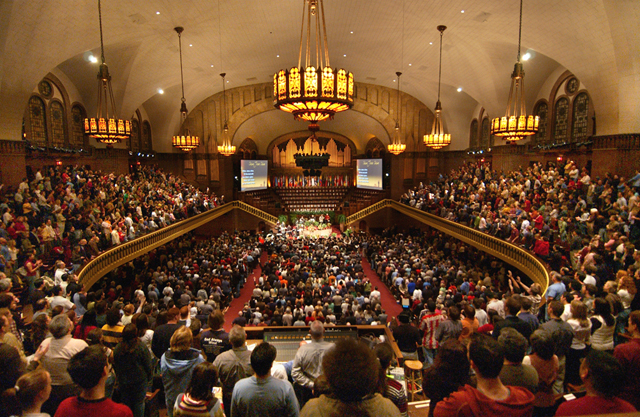Experiencing the life of a church has many benefits.
New Poem: “From a Room”
FROM A ROOM i have held photos and heard rumors of the mud hills of montana, the fire falls of yellowstone, and the patient rain of seattle. a decade has passed by now, and i am here, waiting in a room, writing poems about far away places. with time, the room changes from a living room to a coffee … Read More
Resurrection
The basis of our resurrection hope…
Thoughts on Family Ministry
The family was designed by God to be a unique place, the most basic form of community, where much of our spiritual growth can occur. Because God designed families, churches should support families and minister to them. In this effort, churches need to encourage families to live out their faith outside of Sunday morning. It is during the week, within … Read More
How Technology Can Lead to Laziness
If you’ve ever wasted time with technology, take a few minutes to watch this video. Be sure to watch the whole video, though, because Josh makes some great points throughout. My hope is that this message will be helpful, as it already has for me. (Thanks to Phil Gons for bringing to my attention.)
What It Means to Be Missional
Missional has become a buzzword in Christian circles, but what does it mean? There are many different responses to that, but in my mind, here are a few descriptions of what it means to be missional: Incarnational: You display God’s good news in the way you live. Contextual: You connect God’s good news with everyday life. Personal: You view yourself … Read More
Contentment
I wonder how much time we spend wanting something else. When a child, we want to be adults. When we are adults, we want to find a job and a spouse. Then we want a child, maybe a few. When we have children, we want a house, then a bigger house. We also want a car, a television, a computer, … Read More
Where are you, God?
It is good to ask God, “Where are you?” Some of us are afraid to ask, thinking that our faith or our soul is in jeopardy. But in reality, it is quite the opposite. If we are asking God where He is, it means that we care and that we want to know where God is. In fact, we are … Read More
Poem: Belated Eulogy
Nearly two years later, it is still difficult to write about our son, Jeremiah. For months, I could not write about his death. Then, after it became possible for me to write, I felt like anything that I wrote was far too trivial. About a year ago, I wrote my first song about our experience and memories. Now, about two … Read More
Going Public
For Christians, the “good life” is not something reserved for an exclusive few. It is not hidden, or kept for those who have an ecstatic vision or some kind of secret experience. It is not monopolized by a particular class of people. Christianity is unique in that life is accessible to everyone, regardless of who you are. In 1 John, … Read More
Preparing for Revival
Spiritual revival, or the renewal of our relationship with God, does not merely happen by chance, nor does it descend from heaven without our awareness. Both Scripture and history attest to the fact that certain conditions need to be met before we are spiritually resuscitated. We do not slip and “fall” into revival, but we prepare for it. Thankfully, revival … Read More
Don’t Worry. God Will Bring You Home.
Yesterday, at about 2:30, a doctor told my wife, “Worst case scenario… you die.” They were worried about a blood clot in her leg. Needless to say, we were at the hospital for 8 hours, but the test results showed that nothing was wrong. She went home without needing any treatment at all. As some of you know, this scenario … Read More
Life: Beginnings, Ends, & Everything Else
My wife and I are anticipating the birth of our first daughter, EGJ. (Her full name is top secret for now!) Her arrival could be anytime from now until May 11th, and I am thrilled to the point of tears. Our baby is just about to begin her journey, while I am continuing on mine. What a crazy, miraculous world … Read More




